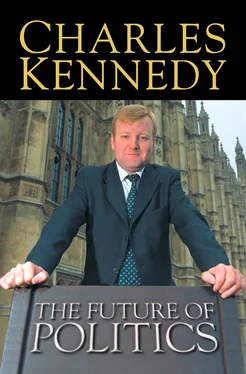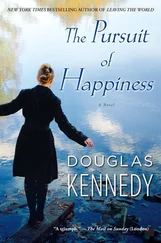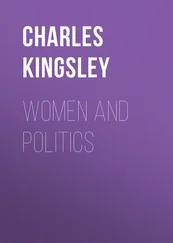I want things to get still better, and they can. In his Dimbleby Lecture, Roy Jenkins mapped out an approach to our political process which has been more than vindicated by events. Quite simply, he was correct. If, as a country, we had listened to and acted upon his prognosis, then a lot of subsequent history would have been different.
Which brings me to today. I believe that the individual is now king, the consumer is in charge. It is right to opt for interests of the individual and the community rather than those of the state. Ask Tony Benn or Tony Blair what they think instinctively about the structure of society, and their answers will tend to centre on the jobs people do and how much they earn. Ask most Conservative politicians and you will find that the Thatcherite mantra of ‘no such thing as society’ still dominates William Hague’s party. Ask a Liberal Democrat and they will respond in terms that stress the relation of individuals to their communities.
It is an altogether different approach to life which needs to be understood clearly. We are in politics to promote the liberty of the individual – the best life chances for all, whoever or wherever they are. That is the core value at the heart of this book, at the heart of my politics and at the heart of the party I lead.
INTRODUCTION: WHY AREN’T THE VOTERS VOTING? CONTENTS Cover Title Page THE FUTURE OF POLITICS Charles Kennedy Dedication DEDICATION Dedication Preface to the Paperback Edition Introduction WHY AREN’T THE VOTERS VOTING? Chapter One FREEDOM FROM POVERTY: THE FORGOTTEN NATION Chapter Two FREEDOM TO BREATHE: THE GREEN FUTURE Chapter Three FREEDOM FROM GOVERNMENT: PEOPLE AND THE STATE Chapter Four FREEDOM TO INNOVATE: SCIENCE AND DEMOCRACY Chapter Five FREEDOM TO GOVERN: THE GREAT DEVOLUTION DEBATE Chapter Six FREEDOM WITHOUT BORDERS: BRITAIN, EUROPE AND THE CHALLENGE OF GLOBALIZATION Conclusion A SENSE OF IDEALISM Notes Index Acknowledgements About the Author Copyright About the Publisher For my parents, Ian and Mary Kennedy Preface to the Paperback Edition Introduction WHY AREN’T THE VOTERS VOTING? Chapter One FREEDOM FROM POVERTY: THE FORGOTTEN NATION Chapter Two FREEDOM TO BREATHE: THE GREEN FUTURE Chapter Three FREEDOM FROM GOVERNMENT: PEOPLE AND THE STATE Chapter Four FREEDOM TO INNOVATE: SCIENCE AND DEMOCRACY Chapter Five FREEDOM TO GOVERN: THE GREAT DEVOLUTION DEBATE Chapter Six FREEDOM WITHOUT BORDERS: BRITAIN, EUROPE AND THE CHALLENGE OF GLOBALIZATION Conclusion A SENSE OF IDEALISM Notes Index Acknowledgements About the Author Copyright About the Publisher
‘I’m not political’ is a phrase I used to hear a great deal. Even in the ferment of Glasgow University in the seventies I was occasionally pulled up sharp when fellow students told me that their interests didn’t extend to what I saw as the ‘big issues’ of the day: nationalization, inflation, trade union power, unemployment and Scottish devolution.
Of course, now that I am an MP, dwelling for the large part in a world populated by fellow Members, journalists, party stalwarts and others intimately involved with the theory and practice of politics, I don’t hear it so often, but I’m fully aware that ‘out there’ in the real world, being ‘political’ does not always mean caring about how the country is run and trying to do something about it. It means something quite different, for instance, rigidly holding a set of outdated principles, having faith in and being involved in a process that for many people has no currency, and it means sleaze. To be ‘political’ is akin to admitting that you are a trainspotter or a collector of antique beermats – a crank, and not always a harmless one.
It’s not just ‘political people’ who suffer as a result of this perception. For a large percentage of British people, the whole political process is deeply boring. It’s obscure, it’s impenetrable and, most importantly, it doesn’t matter if you understand it or not, because – so the logic goes – it doesn’t make any difference. Twenty years ago, it was still possible to find pubs where signs above the bar said ‘No politics or religion’, presumably because they were the two subjects most likely to cause a fight. Nowadays, you never see it, because either people don’t discuss politics at all, or, if they do, it’s conducted with such apathy that the chief danger is that the participants will fall asleep.
I was chatting with an acquaintance recently. I asked him if he’d seen the satirist and impersonator Rory Bremner on TV last night. He shook his head. ‘He does too many politicians,’ he complained, ‘so I ended up watching the snooker.’ I am not, I hope, out of touch. But it had never occurred to me that some people might find his show uninteresting precisely because a large part of its content is political satire. In essence my acquaintance was saying that politics is a turn-off, something that makes you want to change channels.
I don’t blame people for having these opinions. There are many aspects of British politics I dislike. Westminster politics, structured around the two-party system for so long, often looks personal, petty and adversarial. Even with the advent of the so-called ‘Blair Babes’, Parliament often seems like an exclusive gentlemen’s club. I do not believe in dismantling tradition indiscriminately, but much of the day-to-day ritual and protocol at the Palace of Westminster contributes to people’s sense that what goes on there is distant from, if not irrelevant to, their lives. 1 Конец ознакомительного фрагмента. Текст предоставлен ООО «ЛитРес». Прочитайте эту книгу целиком, купив полную легальную версию на ЛитРес. Безопасно оплатить книгу можно банковской картой Visa, MasterCard, Maestro, со счета мобильного телефона, с платежного терминала, в салоне МТС или Связной, через PayPal, WebMoney, Яндекс.Деньги, QIWI Кошелек, бонусными картами или другим удобным Вам способом.
Members of Parliament often suffer similar feelings about their place of work. I remember vividly that when the Berlin Wall collapsed in November 1990, my colleague in the Commons Russell Johnston (formerly MP for Inverness, Nairn and Lochaber), suggested suspending the scheduled business, in order to hold an emergency debate on the titanic developments in Germany and their historic implications. This was ruled impossible, even though the bulk of MPs would have agreed and the Speaker was sympathetic. So the scheduled business went ahead, with run-of-the-mill turnout in the House. It was much the same following the release of Nelson Mandela. Both events filled me with optimism, but the sheer inertia and inflexibility of our own parliamentary system left me feeling gloomy afterwards. It seemed to me very poignant that, while Europeans were breaking down frontiers, the British Parliament was burying its head further in the mud of tradition.
I also view Prime Minister’s Question Time with a measure of distaste. Before I became Liberal Democrat leader I rarely took part in it. I sat through many sessions during my time as a rank-and-file MP, but I never found it a particularly useful political device. Many aspiring party leaders seek to make their mark by launching jibes at the Prime Minister of the day, but tempting though it sometimes was, with characters like Margaret Thatcher and John Major at the dispatch box, that was never for me – it would be possible to count the number of questions I asked on the fingers of one hand. I usually find Prime Minister’s Question Time an irrelevant piece of theatre – a tale of sound and fury, as the quotation goes, signifying nothing.
Читать дальше












